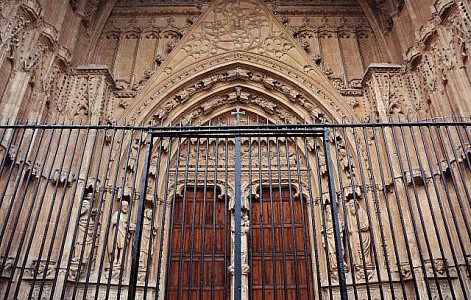[辅导:AncientLawChapter6]If an attempt were made to demonstrate in England the superiority of the historical method of investigation to the modes of inquiry concerning Jurisprudence whi...+阅读
Chapter 9. The Early History of Contract
There are few general propositions concerning the age to which we belong which seem at first sight likely to be received with readier concurrence than the assertion that the society of our day is mainly distinguished from that of preceding generations by the largeness of the sphere which is occupied in it by Contract. Some of the phenomena on which this proposition rests are among those most frequently singled out for notice, for ment, and for eulogy. Not many of us are so unobservant as not to perceive that in innumerable cases where old law fixed a man's social position irreversibly at his birth, modern law allows him to create it for himself by convention; and indeed several of the few exceptions which remain to this rule are constantly denounced with passionate indignation. The point, for instance, which is really debated in the vigorous controversy still carried on upon the subject of negro servitude, is whether the status of the sle does not belong to bygone institutions, and whether the only relation between employer and labourer which mends itself to modern morality be not a relation determined exclusively by contract.
The recognition of this difference between past ages and the present enters into the very essence of the most famous contemporary speculations. It is certain that the science of Political Economy, the only department of moral inquiry which has made any considerable progress in our day, would fail to correspond with the facts of life if it were not true that Imperative Law had abandoned the largest part of the field which it once occupied, and had left men to settle rules of conduct for themselves with a liberty never allowed to them till recently. The bias indeed of most persons trained in political economy is to consider the general truth on which their science reposes as entitled to bee universal, and, when they apply it as an art, their efforts are ordinarily directed to enlarging the province of Contract and to curtailing that of Imperative Law, except so far as law is necessary to enforce the performance of Contracts. The impulse given by thinkers who are under the influence of these ideas is beginning to be very strongly felt in the Western world. Legislation has nearly confessed its inability to keep pace with the activity of man in discovery, in invention, and in the manipulation of accumulated wealth; and the law even of the least advanced munities tends more and more to bee a mere surface-stratum hing under it an everchanging assemblage of contractual rules with which it rarely interferes except to pel pliance with a few fundamental principles or unless it be called in to punish the violation of good faith.
Social inquiries, so far as they depend on the consideration of legal phenomena, are in so backward a condition that we need not be surprised at not finding these truth recognised in the monplaces which pass current concerning the progress of society. These monplaces answer much more to our prejudices than to our convictions. The strong disinclination of most men to regard morality as advancing seems to be especially powerful when the virtues on which Contract depends are in question, and many of us he almost instinctive reluctance to admitting that good faith and trust in our fellows are more widely diffused than of old, or that there is anything in contemporary manners which parallels the Loyalty of the antique world. From time to time, these prepossessions are greatly strengthened by the spectacle of frauds, unheard of before the period at which they were observed, and astonishing from their plication as well as shocking from criminality.
But the very character of these frauds shows clearly that, before they became possible, the moral obligations of which they are the breach must he been more than proportionately developed. It is the confidence reposed and deserved by the many which affords facilities for the bad faith of the few, so that, if colossal examples of dishonesty occur, there is no surer inclusion than that scrupulous honesty is displayed in the erage of the transactions which, in the particular case, he supplied the delinquent with his opportunity. If we insist on reading the history of morality as reflected in jurisprudence, by turning our eyes not on the law of Cont

ract but on the law of Crime, we must be careful that we read it aright. The only form of dishonesty treated of in the most ancient Roman law is Theft. At the moment at which I write, the newest chapter in the English criminal law is one which attempts to prescribe punishment for the frauds of Trustees. The proper inference from this contrast is not that the primitive Romans practised a higher morality than ourselves. We should rather say that, in the interval between their days and ours, morality has advanced from a very rude to a highly refined conception from viewing the rights of property as exclusively sacred, to looking upon the rights growing out of the mere unilateral reposal of confidence as entitled to the protection of the penal law.
The definite theories of jurists are scarcely nearer the truth in this point than the opinions of the multitude. To begin with the views of the Roman lawyers, we find them inconsistent with the true history of moral and legal progress. One class of contracts, in which the plighted faith of the contracting parties was the only material ingredient, they specifically denominated Contracts juris gentium, and though these contracts were undoubtedly the latest born into the Roman system, the expression employed implies, if a definite meaning be extracted from it, that they were more ancient than certain other forms of engagement treated of in Roman law, in which the neglect of a mere technical formality was as fatal to the obligation as misunderstanding or deceit. But then the antiquity to which they were referred was vague, shadowy, and only capable of being understood through the Present; nor was it until the language of the Roman lawyers became the language of an age which had lost the key to their mode of thought that a "Contract of the Law of Nations" came to be distinctly looked upon as a Contract known to man in a State of Nature. Rousseau adopted both the juridical and the popular error. In the Dissertation on the effects of Art and Science upon Morals, the first of his works which attracted attention and the one in which he states most unreservedly the opinions which made him the founder of a sect, the veracity and good faith attributed to the ancient Persians are repeatedly pointed out as traits of primitive innocence which he been gradually obliterated by civilisation; and at a later period he found a basis for all his speculations in the doctrine of an original Social Contract. The Social Contract or pact is the most systematic form which has ever been assumed by the error we are discussing. It is a theory which, though nursed into importance by political passions, derived all its sap from the speculations of lawyers. True it certainly is that the famous Englishmen, for whom it had first had attraction, valued it chiefly for its political serviceableness, but, as I shall presently attempt to explain, they would never he arrived at it, if politicians had not long conducted their controversies in legal phraseology.
Nor were the English authors of the theory blind to that speculative amplitude which remended it so strongly to the Frenchmen who inherited it from them. Their writings show they perceived that it could be made to account for all social, quite as well as for all political phenomena. They had observed the fact, already striking in their day, that of the positive rules obeyed by men, the greater part were created by Contract, the lesser by Imperative Law. But they were ignorant or careless of the historical relation of these two constituents of jurisprudence. It was for the purpose, therefore, of gratifying their speculative tastes by attributing all jurisprudence to a uniform source, as much as with the view of eluding the doctrines which claimed a divine parentage for Imperative Law that they devised the theory that all Law had its origin in Contract. In another stage of thought, they would he been satisfied to lee their theory in the condition of an ingenious hypothesis or a convenient verbal formula. But that age was under the dominion of legal superstitions. The State of Nature had been talked about till it had ceased to be regarded as paradoxical, and hence it seemed easy to give a fallacious reality and definiteness to the contractual origin of Law by insisting on the Social pact as a historical fact.
以下为关联文档:
辅导:AncientLawChapter7The conception of a universal succession, firmly as it has taken root in jurisprudence, has not occurred spontaneously to the framers of every body of laws. Where...

AncientLawChapter1AncientCodesChapter 1. Ancient CodesThe most celebrated system of jurisprudence known to the world begins, as it ends, with a Code. From the mencement to the close of its hi...

辅导:AncientLawChapter1Chapter 1. Ancient CodesThe most celebrated system of jurisprudence known to the world begins, as it ends, with a Code. From the mencement to the close of its hi...

辅导:AncientLawChapter4Chapter 4. The Modern History of the Law of NatureIt will be inferred from what has been said that the theory which transformed the Roman jurisprudence had no...

辅导:AncientLawChapter8Chapter 7. Ancient and Modern Ideas Respecting Wills and SuccessionsAlthough there is much in the modern European Law of Wills which is intimately connected wi...




